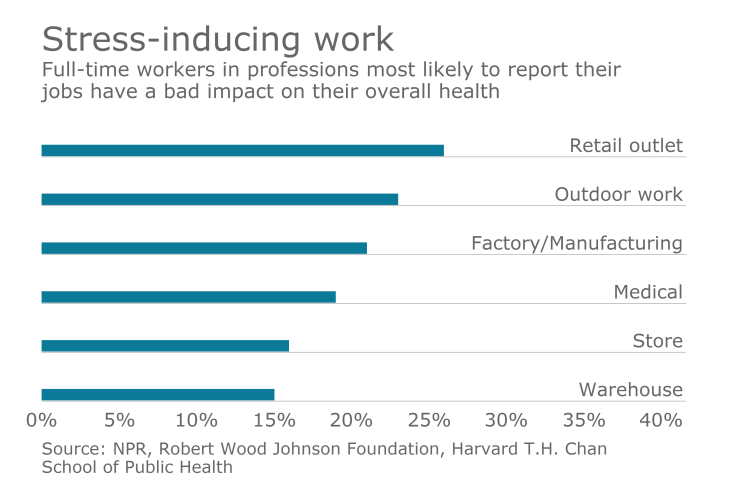More than one-third of U.S. small business employees want to change jobs in the next two years. The biggest reasons? Better career opportunity, higher pay and less stress.
These were the findings of personal and business accounting software provider Intuit’s
Along with finding that 43% of surveyed workers want to find a new job in the next 24 months, 18% are seeking better career opportunities, 16.3% feel they are underpaid and 12.7% want to reduce their current stress level.
The survey also found that 47.5% of small business employees feel underpaid, 55% would leave their job for better pay, and 61% would be willing to give up benefits for a base pay raise instead.
When asked if their pay has kept pace with the cost of living, 63.8% said no. And when it comes to living near their jobs, 23.9% of respondents said they could afford to live close to work.
Employee retention is about more than money — especially in a small business where job satisfaction and overall contribution plays a large role, according to Intuit.

“While cash flow is a vital component to the success of small businesses, many employees said the thing that would motivate them most wasn’t money but the opportunity to have a more flexible work schedule,” says Olivier Bartholot, director of product management for QuickBooks Online Payroll at Intuit. “That’s a very cost-effective way for a business owner to boost employee morale and happiness while benefiting their business and the economy.”
Unlike large corporations that have record amounts of money on hand, small businesses may not have the cash for enticing pay raises, bonuses and above-average employee benefits. This means that retaining talent for small businesses — which employ 56.8 million people or 48% of the private workforce, according to the
“This comes back to the question of what motivates employees. While some did say they wanted a performance-based annual raise, in fact, the more popular choice was a flexible work schedule. The survey suggests people who work for small businesses are not simply motivated by money but also having good work-life balance,” says Bartholot.
The Intuit survey also found that the top incentives that motivate small business employees to work harder are flexible work schedules (76% want this, but only 18% get it), annual performance-based raises (73% want this, but only 10% get it), discretionary bonuses (66% want this, but only 7% get it), recognition awards and prizes (63% want this, but only 7% get it) and the option to work from home (57% want this, but only 8% get it).
In positive news, 74% of small business workers got a raise this year and Intuit found that the average raise across all respondents was 9.3%.
“That’s well above the national average and is also contrary to what many have been saying about wage growth not keeping pace with economic growth,” he says. “Within small businesses, at least, wage growth currently appears strong.”





